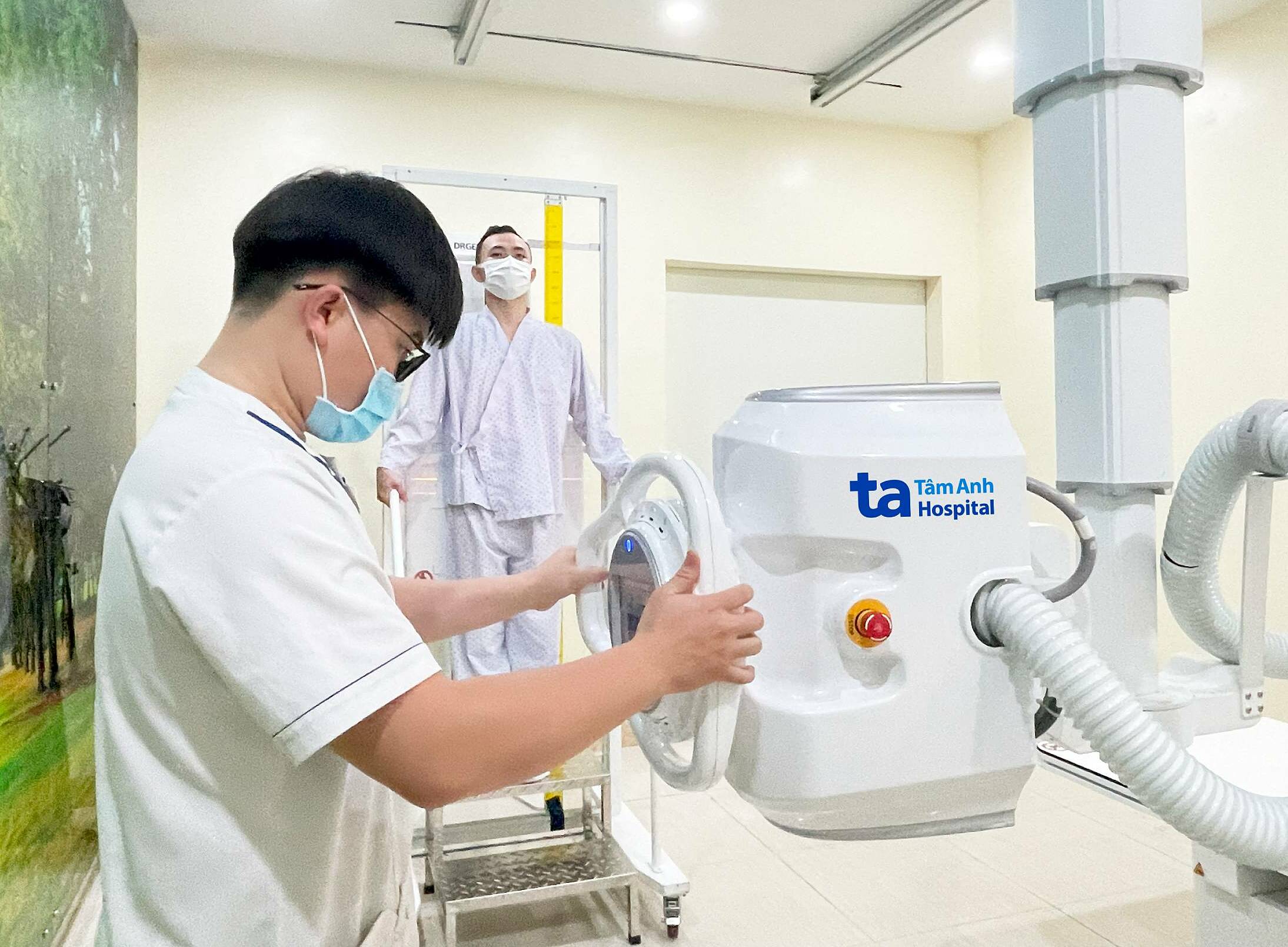Answer:
Bronchial asthma is a chronic respiratory disease characterized by airway inflammation and constriction. During an asthma attack, patients may experience bronchial spasms, mucosal edema, and increased mucus production, leading to difficulty breathing and airway obstruction.
Currently, there's no definitive cure for bronchial asthma. However, patients can effectively manage symptoms (persistent cough, shortness of breath, chest tightness, wheezing) by adhering to a treatment plan, taking medication as prescribed, adjusting their diet and exercise routine, rehabilitating lung and cardiovascular function, and avoiding triggers or polluted environments.
 |
X-ray for diagnosing respiratory and lung diseases. Photo: Tam Anh General Clinic, District 7 |
To diagnose the condition, doctors may order appropriate tests such as a chest X-ray or CT scan, pulmonary function tests, and exhaled nitric oxide (NO) measurements. Blood tests may also be conducted to check eosinophil count, total immunoglobulin E (IgE) levels, and/or skin allergy tests.
Treatment is tailored to the cause and severity of the disease. Some medications that doctors may prescribe for asthma patients include inhaled corticosteroids and bronchodilators, nebulizers, oral medications, or intravenous injections.
Patients may also receive non-drug treatments like oxygen therapy or mechanical ventilation, depending on their individual condition. The goal is to provide sufficient oxygen to alleviate symptoms and maintain bodily functions before proceeding with further treatment.
In addition to the above treatments, asthma patients can benefit from breathing and coughing exercises to effectively clear mucus, yoga, meditation, and regular light exercise. A healthy diet, avoiding allergenic foods, maintaining a clean home environment, and wearing a mask outdoors also positively impact the respiratory system and help manage the disease. Regular follow-up appointments with the doctor are essential for assessing the condition. In cases of frequent difficulty breathing, shortness of breath, wheezing, chest pain, fatigue, or fever, seek immediate medical attention at a reputable healthcare facility.
Dr. Chu Thi Ha
Respiratory - Internal Medicine Unit
Tam Anh General Clinic, District 7
| Readers can submit questions about respiratory diseases here for doctors to answer. |












